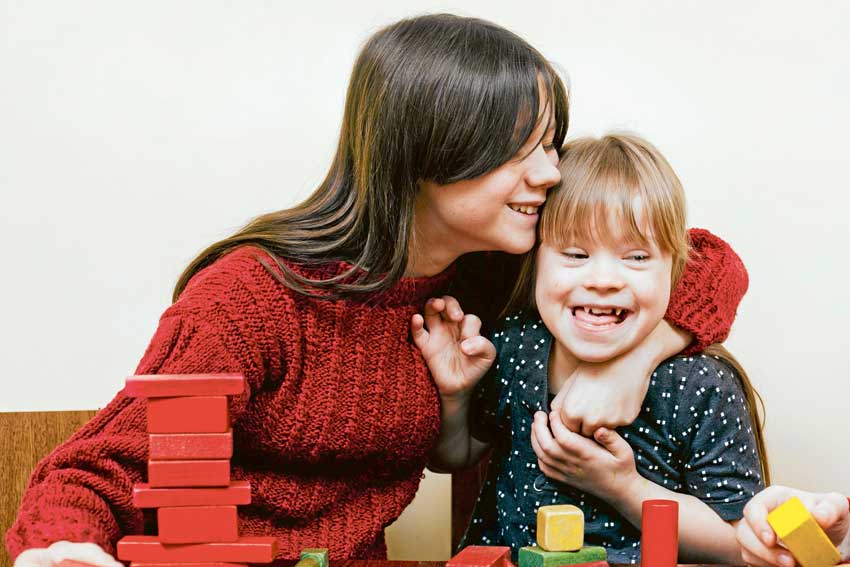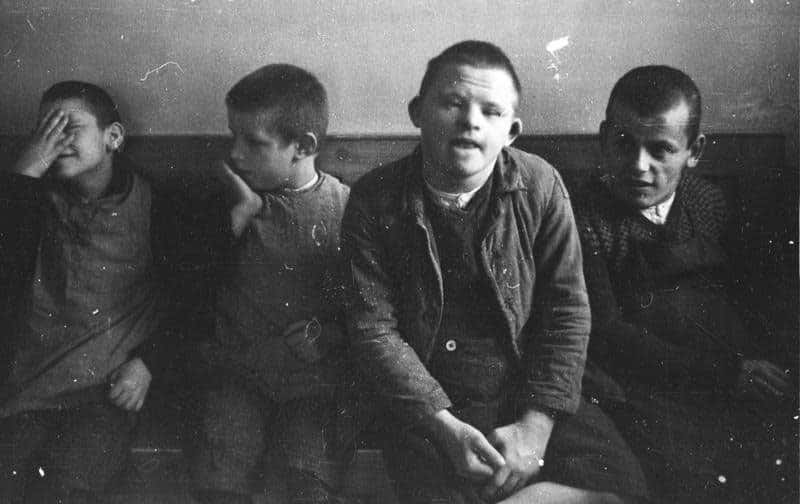
Report reveals appalling attitudes remain around disability
On Sunday, the Royal Commission into Violence, Abuse, Neglect and Exploitation of People with Disability handed down its interim report.
From education, health care, housing, social supports and general societal attitudes, the confronting report describes the abuse and discrimination that are added to the other struggles people with disabilities face.
The Royal Commissioners wrote: “People with disability have told us about the negative or harmful attitudes they often face, as well as assumptions other people make about their quality of life and value to society… People with disability and their family members have reflected on their experiences of being devalued and stereotyped, as well as of a broad lack of understanding and acceptance of them as equal members of society.
NOT SHYING AWAY FROM THE PREJUDICE PEOPLE WITH DOWN SYNDROME SUFFER, JULIA REMARKED: “I THINK I’D RATHER LIVE WITH DISCRIMINATION THAN NOT BE BORN AT ALL.”
“This can send a message that people with disability have less value than other members of the community and therefore do not have the same rights as others.”
Pervasive themes such as “quality of life” and “value to society” used in this report make it abundantly clear that the treatment of those with disabilities is a significant pro-life issue. If we cannot see the humanity in and dignity of a person born with a disability, how will we ever see the humanity and dignity of the unborn diagnosed with the same?
Down Syndrome diagnoses an example of humanity denied
The Royal Commission heard from a number of people with Down Syndrome, and their families.
One witness, Dr Rebecca Kelly, explained that negative attitudes and assumptions affect children with disabilities and their families from the moment the disability was observed. She told the Royal Commission that diagnoses are always given in negative terms, using the language of risk.
She told the Commission that no one ever talks about the “risks of winning Lotto,” but they do talk about the risk of dying with cancer. “Risk is inherently associated with bad outcomes,” she said. “Risk sends a message that Down syndrome itself – and intellectual disability more generally – is a negative thing and it reinforces these outdated concepts around disability.”
The Royal Commissioners commented that there is a common assumption that “people with a disability would be better off dead or not having lived”.
This idea that the disabled would be better off dead, or not having lived, is why nine in 10 unborn babies diagnosed with Down Syndrome are aborted, and why we have heard so many stories at the Royal Commission of children with Down Syndrome receiving sub-standard medical care, left to struggle with and even potentially die from conditions that would have otherwise been treated in a “normal” child. It is also why we see an increasing push for euthanasia to be a ‘choice’ for the disabled.
I don’t know if any of you caught the documentary Upside on the ABC a couple of weeks ago. If not, it is available on iView and definitely worth watching. Told through the eyes of Julia Hales, a 39-year-old actress with Down Syndrome, Upside explores the lives of those living with Down Syndrome.
At the beginning of the program, Julia outlines how society has ‘progressed’ over the years. If she were born a generation earlier, Julia would likely have been institutionalised, rather than living independently. If she were born a generation later, Julia would likely have been aborted, rather than living at all. Not shying away from the prejudice people with Down Syndrome suffer, Julia remarked: “I think I’d rather live with discrimination than not be born at all.”

Julia spoke with Tanya, the mother of Emma, who has Downs. Emma said that they weren’t given a balanced view about Down Syndrome by their doctor. She said no positives were given, spoke of all the challenges Tanya, her husband and Emma would face, and – Tanya describes – stopped talking about Emma as a person and instead as a diagnosis. She said the doctor was quite taken aback that they were not considering abortion, and that he kept bringing the subject up, even into the third trimester.
Tanya’s experience is consistent with that of Emma Mellor, who told BBC that she was offered abortion 15 times throughout the pregnancy, including at 38 weeks, and she was told that they could still terminate until the baby started travelling down the birth canal.
The type of discrimination shown to unborn children with Downs Syndrome continues throughout their lives, with many telling the Royal Commission of abuse and poor treatment in health, education, care and general attitudes.
There is no way to describe this other than dehumanisation.
Throughout history, people have justified the oppression of a segment of society by first denying their humanity. We have seen it in multiple genocides, in the persecution of religious groups, in the maltreatment of the elderly (as we are seeing in another Royal Commission, currently running) and in the extermination of the unborn.
The Disability Royal Commission is showing us another way it is happening, here and now. We can’t let the Commission’s work go unheeded. Because disability care is a pro-life issue.
Related articles:
